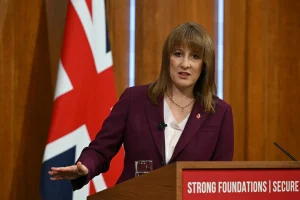This month we have the pleasure of hearing from Mark Brealey KC, an expert in the field of competition law who has represented the likes of Pfizer and Ryder in numerous consequential cases. In this exclusive interview, he speaks in depth on his journey into law and offers unique insights on how the field of competition law continues to develop today.
What was it that attracted you to competition law?
Competition law is fascinating and litigating competition law is more so.
Competition law is never boring. It throws up interesting points of law whilst being grounded in the real world. Businesses adopt restrictive practices on a daily basis. Some are legitimate, some are not. Some are good for the consumer, some are not. The aim of competition law is to identify those which are not.
For example, a non-compete obligation in a vertical agreement may have pro-competitive effects but a non-compete obligation between competitors is likely to be objectionable. It then becomes critical to determine whether the two businesses are actual or potential competitors. Take another example: it is the lifeblood of competition that businesses undercut their competitors to exclude them from the market. Yet if a company is dominant, the same conduct may become objectionable. The definition of the relevant market – how wide or how narrow – becomes a critical factor.
The uncertainty of litigation is then added to the mix. One must try to predict the outcome of competition law disputes, but one can often feel like Pythia at Delphi (and, unfortunately, one can sometimes feel like Cassandra of Troy – to utter true prophecies but never be believed)! The final ingredient is the advocacy, which is obviously about persuasion and how best to put a case. But it involves knowing what to say as well as knowing what not to say!
Competition law is never boring. It throws up interesting points of law whilst being grounded in the real world.
By the same token, why did you opt to become a barrister?
It was a television programme that inspired me to be a barrister. In the 1970s, ITV (Granada) showed a programme called ‘Crown Court’. It ran in the afternoons and each programme comprised three episodes of 25 minutes; the first episode started with the prosecution and the next episode with the defence. The players were actors, but the jury was picked from the public and would deliver their verdict in the last episode. It was compelling stuff. Anyone who has watched it will remember the foreboding introductory music (which as I found out many years later was the Sinfonietta 4th movement by Janacek). It was that programme that got me hooked into the legal system. I always wanted to be a barrister after that.
Please tell us about the areas that your practice covers.
While at university, I studied European law. This was a move away from a rigid statutory interpretation of an Act of Parliament and away from a deep forensic analysis of a ratio decidendi. It was a game changer to have fundamental principles to consider, such as the principles of equal treatment and effective protection of individual rights.
It was this principle of effective protection that led me to realise that Mr Crehan, a publican, should be entitled to claim damages for loss suffered by being tied to purchasing beer from his brewery landlord. The reaction of the High Court was to bar his claim because he was party to the unlawful tie. But he was signing on the landlord’s standard terms and conditions and was not responsible for the alleged foreclosure of the market. The CJEU ruled that the principle of ex turpi causa should not bar his claim because that would infringe the principle of effective protection (Case C-453/99 Courage v Crehan). This judgment was the catalyst for the wave of private litigation that subsequently followed.
It was a game changer to have fundamental principles to consider, such as the principles of equal treatment and effective protection of individual rights.
I have always practised competition law, but in the early years I was a common law European Union lawyer. EU law spanned nearly every subject, including agriculture, employment, transport, customs and restrictive practices. As lawyers gradually got to grips with EU law, my practice narrowed until it was focused exclusively on competition law. This has remained so because of the introduction of the Competition Act 1998, Brexit, and the grant of greater powers to the CMA.
What types of cases do you handle?
I have been lucky enough to have appeared in several seminal cases involving competition law.
I have had several trips to the Supreme Court on competition issues. In Sainsbury’s Supermarkets v Visa and Mastercard [2020] UKSC 24 I acted for Sainsbury’s, who successfully argued that the interchange fees payable to the payment card companies restricted competition. The judgment also contained important statements on the pass-on defence (we had successfully argued in the Mastercard trial that there was zero pass-on).
In Deutsche Bahn v Morgan Crucible [2014] UKSC 24, which concerned the graphite cartel, we successfully argued that the claim for damages was time-barred. Similarly, in BCL Old v BASF [2012] UKSC 45, which concerned the vitamins cartel, we successfully argued that the claim for damages be dismissed. In CMA v Flynn Pharma [2022] UKSC 14 we successfully argued that the CMA should be liable to adverse costs orders (the CMA had argued that, as a public authority, it was effectively exempt).
I am also privileged to have appeared in several Court of Appeal cases involving important points of competition law. For example, recently in CMA v Pfizer [2020] I acted for Pfizer in its appeal against the CMA’s decision that the price of a drug was unfair. We successfully argued that the CMA had not applied the correct test for an excessively abusive price. The CMA had wrongly focused on a cost-plus model and had had insufficient regard to the prices of comparator products. The judgment contains important statements of principle concerning the CJEU’s judgment in United Brands and what considerations are relevant in determining an excessive price.
In AB Volvo v Ryder Ltd [2020] EWCA Civ 1475 I acted for Ryder, which was suing various truck manufacturers for loss suffered because of the trucks cartel. The manufacturers had admitted their liability as a part of the EU leniency and settlement programme. We successfully argued that the defendants should be bound by the findings of fact admitted as part of these programmes. It would be an abuse of process to re-litigate such findings in the domestic courts.
As lawyers gradually got to grips with EU law, my practice narrowed until it was focused exclusively on competition law.
The bread and butter, though, are the trials. There is much litigation concerning competition law, whether it be an appeal against a decision adopted by the CMA or a claim between two private parties. This year I have had a three-week and a five-week trial. Both amounted to complex pieces of litigation involving significant disclosure, witness evidence and expert evidence adduced by both sides.
These trials do have extra dimensions. If the hearing is an appeal against an infringement decision it has the added dimension of being quasi-criminal because of the substantial penalties that are involved. That involves a greater duty to ensure a fair hearing than normally associated with civil litigation. If the hearing is a private dispute involving a claim for damages, we must understand complex regression models to determine the extent of any overcharge and pass-on.
Forensic accounting evidence will often be adduced to determine any loss of profit caused by any pass-on (volume effects) and, lastly, the amount of any compound interest which, given the secretive nature and duration of cartels, can often double the size of the main claim. All of this is on top of the esoteric points of competition law that gave rise to the dispute in the first place.
Can you tell us about one of your international appearances?
One of my recent highlights was appearing in the Supreme Court of the incredibly friendly Island of Mauritius. I was given special dispensation to appear on behalf of Emtel, one of the mobile phone operators in Mauritius, who was suing the fixed line operator, Mauritius Telecom, for attempting to remove it from the market in favour of its own mobile phone operator, Cellplus (Case 2017 SCJ 294 Emtel v Cellplus). The case is now before the Privy Council.
What in your view have been the main developments in competition law?
Competition law has been litigated in the UK now for some time. However, the last few years have seen some fundamental changes in the way it is litigated.
First, Brexit has made competition law more UK-centric. I appeared regularly before the Courts in Luxembourg, and although I have rights of audience as a member of the Irish bar (having taken the bar exams because of Brexit), there is no doubt that Brexit has changed the way competition law is litigated. There are no references from the UK to the CJEU anymore. The CMA now adopts the infringement decision, whereas before Brexit the EU Commission may have taken the lead.
Competition law has been litigated in the UK now for some time. However, the last few years have seen some fundamental changes in the way it is litigated.
Second, the last few years have witnessed a significant increase in class actions (including opt-in but particularly opt-out). The Supreme Court’s judgment in Merricks lowered the threshold for bringing such collective actions. The CAT now has several collective actions in the pipeline against big tech companies, transport operators and payment card schemes. These will all come to trial in the next few years and may represent a sea change in the way that private litigation is perceived as enforcing competition law.
Third, because of the judgments in the Interchange fee litigation, most private claims for damages commenced in the High Court are now transferred to the CAT. Although the High Court retains jurisdiction where the competition law claim is mixed with a non-competition claim (e.g. contractual or a fraud claim), the CAT has effectively become the default forum for determining private law competition law disputes. The CAT is now the specialist forum for hearing all disputes involving competition law: the CAT determines private law claims in addition to exercising its statutory supervisory powers over the CMA.
None of these changes present a problem. In this country we have an amazing system set up to determine anti-competitive practices: a robust and specialist competition authority headed up by and advised by some of the best competition lawyers and economists (the CMA), and a tribunal comprised of specialist competition law judges and leading economists (the CAT). We also have a Court of Appeal and a Supreme Court that comprises judges who were, when at the bar, specialist practitioners of competition law. In short, we have competition law expertise throughout the judicial system.
What do the next two years have in store for you?
The diary for 2023-2024 looks busy! The trucks cartel litigation starts in March 2023. I have trials involving pharmaceutical drugs (abusive pricing and a pay for delay). I am acting for Epic in the forthcoming trial involving Google which concerns the removal of the Fortnite game from the Android phone, and which in turn concerns the restrictions on operating competing app stores and in-app payment solutions. The banking libor litigation continues.
[ymal]
In addition, I need to start writing the third edition of the book ‘Competition litigation: UK Practice and Procedure’. This is a cradle-to-grave account of litigating competition law: how to bring a claim, the correct forum, disclosure, summary judgment, remedies, the hearing, costs, appeals etc. Keeping the book up to date is like ‘painting the Forth Bridge’ – an interminable task. But that is what makes it all so interesting!
Mark Brealey KC
1 & 2 Raymond Buildings, Gray’s Inn, London WC1R 5NR, UK
Tel: +44 02074 057211
Fax: +44 02074 052084
Mark Brealey is a barrister and a specialist litigator in all aspects of competition law. He regularly appears before the Competition Appeal Tribunal on behalf of companies appealing CMA decisions and has argued points of importance before the Supreme Court and Court of Justice of the European Communities many times. He is also the editor of ‘Competition litigation: UK Practice and Procedure’ and was recognised as The Times Lawyer of the Week beginning 25 June 2020.
Monckton Chambers is a leading set of barristers’ chambers with expertise across a broad swathe of civil and commercial law, with particular focuses on EU, competition, commercial litigation and arbitration, VAT and public and administrative law. Being one of the first chambers to move to Gray’s Inn in 1964, Monckton Chambers has a storied history of acting for large corporates, SMEs and private individuals throughout the private sector.






















